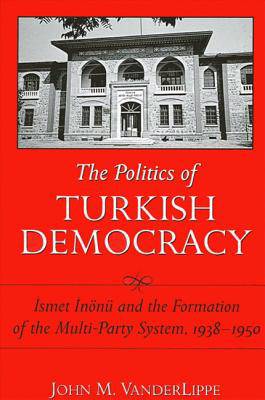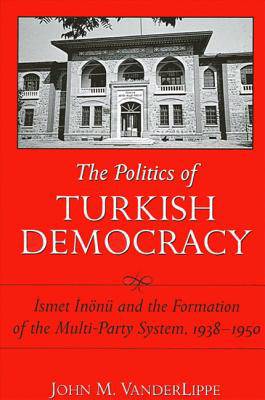
- Afhalen na 1 uur in een winkel met voorraad
- Gratis thuislevering in België vanaf € 30
- Ruim aanbod met 7 miljoen producten
- Afhalen na 1 uur in een winkel met voorraad
- Gratis thuislevering in België vanaf € 30
- Ruim aanbod met 7 miljoen producten
Zoeken
The Politics of Turkish Democracy
Ismet Inonu and the Formation of the Multi-Party System, 1938-1950
John M Vanderlippe
€ 145,45
+ 290 punten
Uitvoering
Omschrijving
One of the most significant yet least known periods of modern Turkish history is that of Turkey's second president, Iùsmet Iùnönü. Following the death of Mustafa Kemal Atatürk in 1938, Turkish politicians and intellectuals struggled to redefine Kemalist notions of modernity and democracy, Islam and secularization, the role of the state, and Turkey's place in the world. The Politics of Turkish Democracy examines Iùnönü's presidency (1938-1950), which developed amid the crises of World War II and the Cold War, global economic and political transformation, and economic and social change within Turkey. John M. VanderLippe analyzes the political discourse of the era and argues that Iùnönü was a pivotal figure who played the decisive role in Turkey's transition to a multi-party political system.
Specificaties
Betrokkenen
- Auteur(s):
- Uitgeverij:
Inhoud
- Aantal bladzijden:
- 282
- Taal:
- Engels
- Reeks:
Eigenschappen
- Productcode (EAN):
- 9780791464359
- Verschijningsdatum:
- 1/07/2005
- Uitvoering:
- Hardcover
- Formaat:
- Genaaid
- Afmetingen:
- 158 mm x 239 mm
- Gewicht:
- 512 g

Alleen bij Standaard Boekhandel
+ 290 punten op je klantenkaart van Standaard Boekhandel
Beoordelingen
We publiceren alleen reviews die voldoen aan de voorwaarden voor reviews. Bekijk onze voorwaarden voor reviews.











